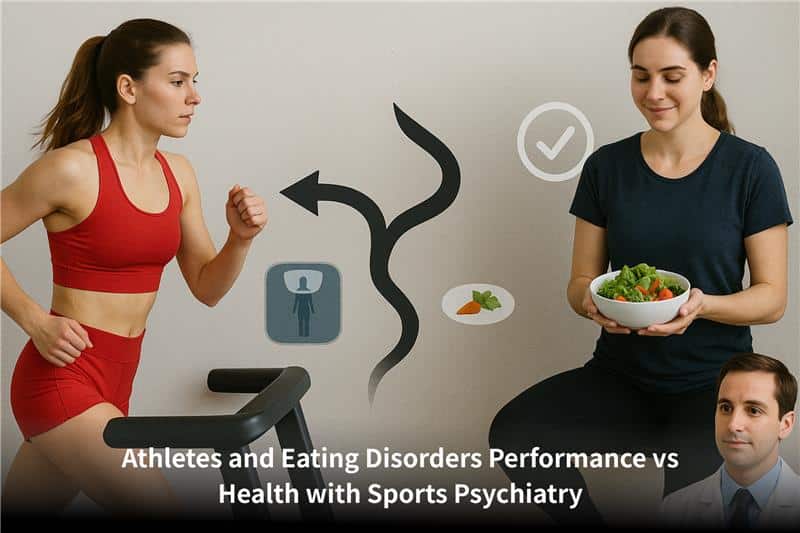The difficultness of direct defiance. The struggle in direct aggression. The constant power struggles. If your child demonstrates impulsive control, and has conduct disorders, you’re not alone, and it’s not your fault. Parenting children with disruptive behavior disorder is tremendously difficult, but with psychiatric treatment and the right tools, your child can better follow rules.
Children and teens with conduct disorder behave in extremely difficult methods. This blog offers a supportive and accountable path to understanding conduct disorder while examining treatment options that utilize psychiatric practices. Our plan will be to find those tangible ways to protect your child’s mental health while also doing your best to protect your own mental well-being.

What Conduct Disorder Is and Why Does It Shows Up?
Looking beyond the surface
Conduct disorder isn’t just “bad behavior.” It’s a legitimate mental health issue. Children with this disorder typically exhibit a pattern of violating rules, or harming others. This may include bullying, lying, stealing, or even starting fires.
While the outward appearance of conduct disorder often looks like bad behavior, there may often be a host of mental health obstacles including brain chemistry issues, genetics, and experiences.
Many children with conduct disorder also have the diagnosis of attention deficit-hyperactivity disorder (ADHD), anxiety disorder, and substance use disorder. Others have lived through trauma or experienced poor parenting and care where rules were not applied consistently.
Understanding these challenges, helps parents stop self-blaming and keep their eye on finding genuine treatment for a disruptive behavior disorder.
Why Is Real Diagnosis Important?
Skip the internet search, talk to a psychiatrist
A proper diagnosis is the first step toward impulse control disorder treatment. A psychiatrist doesn’t just look at behavior they look at patterns, environments, and triggers.
They may use behavior checklists, talk with your child, and speak with you about school, home, and social settings. They also rule out other conditions like intermittent explosive disorder, mood disorders, or anxiety.
Getting a psychiatric evaluation ensures your child isn’t misdiagnosed, which can lead to ineffective or even harmful treatments. Early input from a mental health professional creates a clearer, more hopeful path.
Psychiatric Approaches That Help Children with Conduct Disorder
Psychiatric treatment focuses on managing symptoms and improving behavior by addressing the brain and how it reacts. While therapy may be helpful, the core of healing for conduct disorder often starts with medications.
Psychiatrists may recommend medications to help with aggression, impulsivity, or coexisting mental health disorders. Here are some common ones used:
- Risperidone helps calm severe aggression
- Stimulants can support kids with ADHD
- SSRIs assist in managing mood swings and anxiety
These medications aren’t magic solutions. But they calm the storm long enough for your child to start building better habits.
Everyday Parenting Tools That Support Psychiatric Treatment
Small changes can lead to big differences. Parenting a child with conduct disorder is difficult. There are, however, ways to minimize conflict and establish shared trust, especially when there is collaborative treatment with your child’s mental health treatment. Here is some advice from mental health professionals:
- Be consistent. Children with conduct disorder benefit from clarity and structure, which can reduce the chaos and unpredictability that they so often experience.
- Don’t battle emotionally. Stay calm and firm. Consequences will usually speak much louder than your shouting.
- Celebrate small successes. There are no small or insignificant successes, no matter how small. The victories can be marked with a chart or points, or just, verbal praise.
- Don’t isolate yourself. Work with the child’s school, child care team, and other family members to establish a support system.
Ultimately, this is not about perfection. It is about making you and your child feel safe.
What To Do When a Crisis Hits
Sometimes, things escalate fast. Meltdowns turn into danger. In these moments, having a plan can protect everyone.
Psychiatrists encourage parents to do the following:
- Know who to call. Keep your psychiatrist’s number and the local crisis line in easy reach.
- Create a calm zone. If possible, move your child away from loud spaces or triggering objects.
- Don’t try to restrain. Physical confrontations can cause harm. Step back and seek help.
- Emergency care is okay. If your child needs inpatient support, it’s not a failure. It’s safe.
Mental health disorders like conduct disorder can feel unpredictable. But having tools and a plan helps you respond, not react.
Looking Ahead with Hope and Clarity
With regard to the future of children with conduct disorder, there is a bright indication of success, especially in regard to early psychiatric treatment. It is a long process, but ultimately, many children develop better emotional regulation, better relationships and accountability.
Impulse control disorders entail more than just bad choices. They capture what is happening neurologically and emotionally. Psychiatric treatment of impulse control disorder calms the storm. With time, families begin to see progress with ongoing support.
Progress is not a straight line. But each step forward-, every calm moment, every kind word, every night that was safe- counts.
Creating a Healing Space at Home
Your presence matters more than perfection
The environment of your home can either feed a storm or provide a secure place to rejuvenate. A stable home may not solve every problem, but it may make psychiatry more effective. Keep the routines simple. Try to maintain a consistent way of speaking to your child: develop habits of speaking kindly while still being firm. Provide choices only when appropriate, it is okay to say “no” and hold boundaries.
Children also mirror what they see. You can model emotional regulation for your child when you take deep breaths, pause, and relax your body to help think things through instead of react. Let your child see that adults also have feelings that they manage not just react to.
Children want to connect with their caregivers and obtain comfort. You need to remember this when your child refuses to be comforted, because this refusal is not personal, but symptomatic of conditions related to mental disorders that affect their behavioral and cognitive processes even if they and you feel abandoned in the heated moment. Patience and love from you is not just care, it’s transformative.
You Are Not Alone in This
Let others support your strength
You don’t have to go through disruptive impulse control and conduct disorders alone. Use your extended family, teachers you trust, and your child’s care team. Talk to trusted friends or support groups and allow them to help you when you feel overwhelmed. It is okay to ask for help. It is okay to feel weary. You must keep putting one foot in front of the other. You are doing one of the hardest jobs on the planet, and every step matters.
Final Thoughts
Parenting a child with conduct disorder is not about fixing them. It’s about understanding them, loving them, and staying strong enough to guide them toward healing. Psychiatric care, structure, and support can help your child to thrive and move forward with confidence. You are not failing. You are parenting with purpose. And that’s more powerful than you know.









